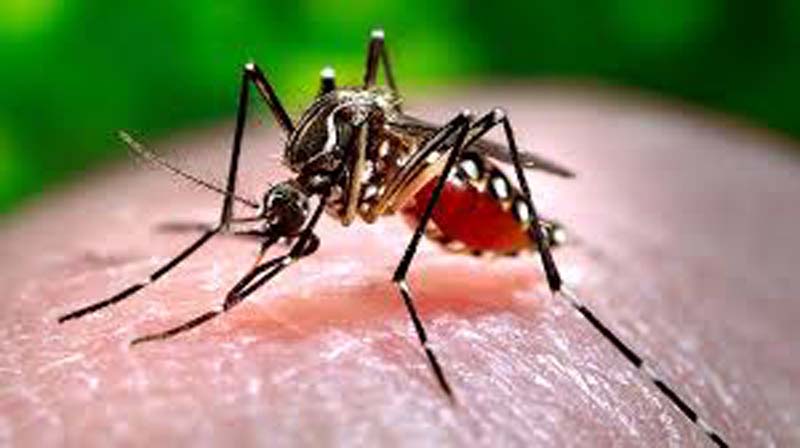New Delhi, Feb 13: Research has revealed that while elevated temperatures consistently facilitate the spread of dengue, the effects of rainfall can vary, potentially increasing or decreasing transmission based on the length of dry spells a region has experienced.
The study, published in the journal Science, explored the interaction between temperature and rainfall and its implications for dengue outbreaks, especially in areas previously unaffected due to climate change-induced warmer and humid conditions.
Led by researchers from the Korea Advanced Institute of Science and Technology and the Institute for Basic Science, the study emphasized the significance of local climate conditions in the spread of dengue, thereby necessitating tailored prevention strategies.
Dengue, a viral infection transmitted by infected mosquitoes, is prevalent in tropical and subtropical climates, particularly in urban and semi-urban regions.
The researchers studied 16 diverse climate regions in the Philippines, analyzing data collected over five years from January 2015 to December 2019.
While rising temperatures were consistently linked to increased rates of dengue transmission across all regions, the effects of rainfall varied, enhancing disease spread in the eastern regions while reducing it in western ones.
The study indicated that these contrasting effects of rainfall on dengue transmission were influenced by a previously overlooked factor—the ‘variation in dry season length’, which reflects the differences in the duration of dry spells across different geographical areas.
In regions with stable dry season lengths, rainfall helped eliminate stagnant water and lower mosquito breeding sites, thereby mitigating dengue spread. Conversely, areas with fluctuating dry season lengths saw sporadic rainfall create new breeding sites, undermining the flushing effect and leading to increased mosquito populations and dengue cases.
“Our findings present strong evidence of how climatic factors affect dengue transmission across various environments, marking a crucial advancement in understanding the potential impacts of climate change on mosquito-borne diseases worldwide,” stated Olive R. Cawiding, the first author from the Korea Advanced Institute of Science and Technology and the Institute for Basic Science.
To confirm their results, the team examined data from Puerto Rico, another region characterized by diverse climate patterns, analyzing 20 years of data from municipalities such as San Juan, Adjuntas, and Ponce, spanning from 1986 to 2005.
The analysis revealed similar trends in how rainfall influenced dengue transmission, aligning with results observed in the Philippines.
“We found that temperature consistently correlated with increased dengue incidence across all the regions, while the impact of rainfall varied based on dry season length, a previously neglected factor,” the authors noted.
“Our findings underscore the necessity for customized prevention strategies that consider local climate conditions, rather than adopting a universal approach,” they added. (PTI)


Leave a Reply